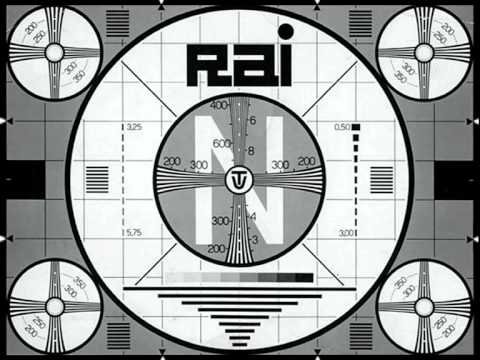#57: Mamma RAI
Ciao Nonni!
I hope you are enjoying some lovely springtime weather in Melbourne. What a marvellous time of the year - aside from the hay fever. Fingers crossed you are not suffering too much from all the pollen.
If it makes you feel any better, we have well and truly entered the rainy season here. Lucca is famously wet in October, and this year it has started right on time. Gone are the shorts and t-shirts of a month ago, and on with the jackets, ponchos and umbrellas.
Gone also are most of the tourists. Lucca's centro storico has been reclaimed by the Italians - clad in their scarves, boots and coats for their evening passeggiate.
Sunday evening along the main pedestrian street (Via Fillungo) is like an outdoor fashion show, in which the families of Lucca promenade up and down in their finest attire. I sincerely suspect that many of them come into town just for this walk, as I don't see them all going into nearby bars for aperitivo, or restaurants for dinner. It's lovely though. It feels like a film set.
I'm a week into my Italian language intensive, and I couldn't be happier with the experience so far. It is a perfect mix of language and culture, and not too much of the dreaded grammar.
Don't get me wrong, we do learn grammar, but the emphasis is on conversation rather than just drilling verb conjugations. I am feeling more confident already in my speaking! Hopefully by the end of the year I will be well on my way to speaking properly.
There's been plenty of discussion of Lucchese and Tuscan history and culture in particular, but also some less obvious Italian history that has shaped the country's cultural identity.
My favourite topic so far has been on the history of the country's national broadcaster.
RAI (Italy's version of the ABC), affectionately known as Mamma RAI, started life as the country's radio broadcaster. As the advent of television was introduced, Italians of course managed to turn even this most antisocial of devices into something social. Television sets were owned by bars, and the viewing of the telegiornale (news) became a meeting point for entire communities.
One of RAI's first remits was to address the high rates of illiteracy in the Italian population. Following two world wars and a long period of economic struggle, many Italians (particularly women) were suffering from leaving education at very early ages. The country knew that to recover, this would need to be remedied.
One of RAI's first programs was called "Non è mai troppo tardi" - which translates to It's Never Too Late. This program aimed to teach those left behind in their education, to read, write and learn about history and culture.
Our wonderful teacher, Nicole, played a short video of a group of Italians (most of them women in their 50s, 60s and 70s) who had learned to read from these programs. They spoke about the difference it had made in their lives.
It was incredibly emotional to watch, and brought Nicole to tears, which she says happens every time she plays it.
Italians my age are very nostalgic about these programs, because many have nonnas and bisnonnas who learned to read and write as a result of watching them.
I couldn't help but think about how much all the women in our family would have suffered if we hadn't received an education. How lucky we are.
All my love,
Kate

